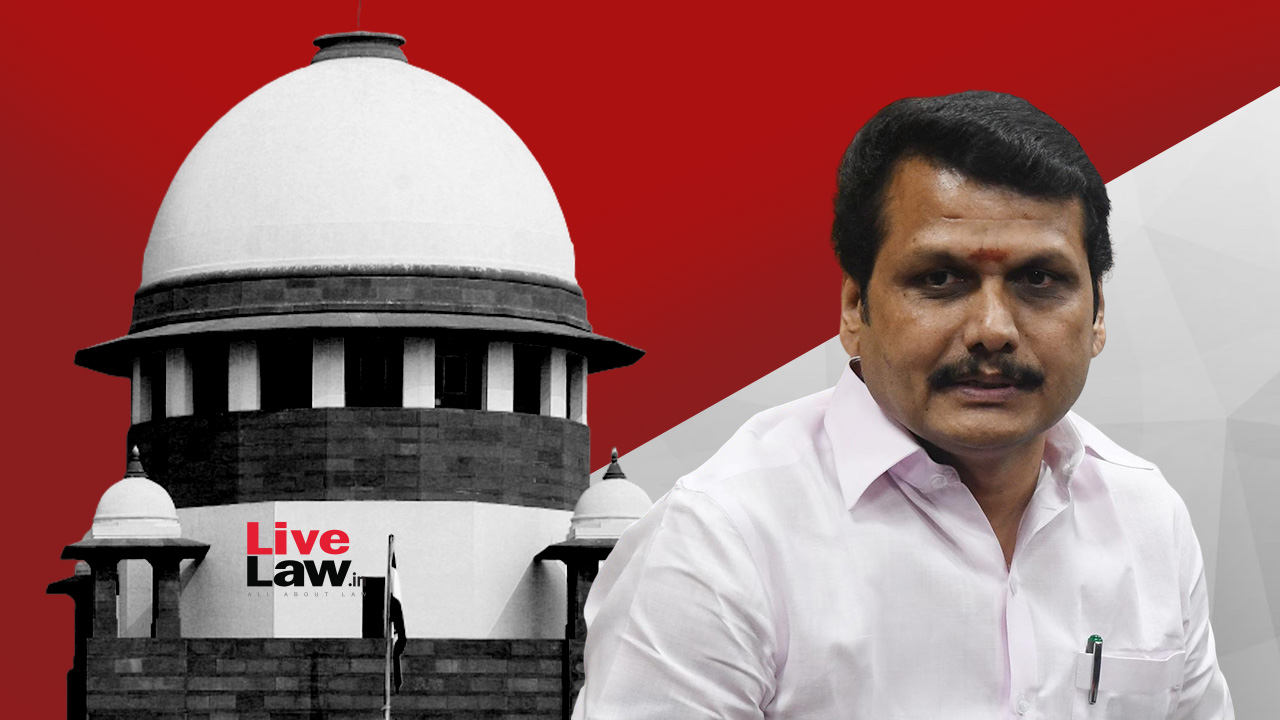Indian Minister Faces New Scrutiny After Controversial Bail and Swift Appointment
A prominent Indian minister is under fire following a Supreme Court decision to grant him bail on corruption charges only to see him immediately appointed to a powerful cabinet position. The unusual circumstance has raised concerns about the potential influence of the minister’s new role on witnesses in the ongoing case.
Senthil Balaji, a minister in the Tamil Nadu state government, was released on bail by the Supreme Court on September 26th, despite the court’s acknowledgment that there was "prima facie case" against him. The Court cited Balaji’s lengthy pre-trial detention and the likelihood of a lengthy trial as justifying his release. However, within days of his release, Balaji was sworn in as a Cabinet minister, raising eyebrows among legal experts and the general public.
During a recent hearing, Justice Abhay S Oka of the Supreme Court expressed his bewilderment over the situation, stating, "We grant bail and the next day you go and become Minister! Anybody will be bound to be under the impression that now with your position as a senior Cabinet Minister witnesses will be under pressure. What is this going on?"
While the court refused to overturn its initial bail decision, citing its benefit for other individuals in similar circumstances, it agreed to examine the concerns regarding potential witness intimidation. The court limited the scope of its review to whether witnesses felt pressured by Balaji’s new ministerial role.
This unusual situation highlights the complexities of India’s legal system and raises questions about the balance between individual rights and ensuring a fair trial. Balaji’s case is being closely watched, as it could have implications for how courts handle similar cases in the future. The Supreme Court’s decision to focus on the potential impact of Balaji’s ministerial position on witnesses suggests a recognition of the potential for power imbalances to influence the judicial process.
The legal battle surrounding Balaji sheds light on the intricacies of India’s political landscape and the ongoing struggle to ensure transparency and accountability. As the case progresses, observers both domestically and internationally will be watching to see how the Indian judicial system addresses these complex challenges.
[Include Social Media Ember or image link as provided in original article]
## Indian Minister’s Controversial Bail and Swift Appointment Spark Concerns Over Witness Intimidation
A recent Supreme Court decision in India has ignited debate about the delicate balance between individual rights and a fair trial. The court granted bail to Senthil balaji, a Tamil Nadu state minister facing corruption charges, despite acknowledging a “prima facie case” against him. Within days, Balaji was appointed to a powerful cabinet position, raising serious concerns about the possible intimidation of witnesses in his ongoing case.
This high-profile situation has sparked intense scrutiny of India’s legal system and the potential for political influence to undermine the pursuit of justice. To delve deeper into the complexities of this case,World Today News spoke with two prominent legal experts: **Dr. Anjali Kumar**, Professor of Criminal Law at Delhi University, and **Mr. Arun Sharma**, a Senior Advocate practicing at the Supreme Court of India.
### The Bail Decision and Its Aftermath
**World Today News:** Dr. Kumar,coudl you provide some insight into the Supreme Court’s rationale for granting bail to Minister Balaji despite acknowledging a strong case against him?
**Dr. Anjali Kumar:** The court cited Balaji’s prolonged pre-trial detention and the prospect of a lengthy trial as crucial factors in its decision. The Justices emphasized the importance of balancing the rights of the accused with the need for a fair trial. However, the swift appointment to a ministerial position immediately following his release is deeply troubling.
**World Today News:** Mr. Sharma, what are your thoughts on the timing of Balaji’s appointment and its potential implications for the case?
**Mr. Arun sharma:** The Supreme Court itself expressed puzzlement over this situation. One can’t help but wonder if the appointment was intended to exert pressure on witnesses or influence the course of the proceedings. It creates a significant perception of conflict of interest and raises serious concerns about the fairness of the legal process.
### The Potential for Witness Intimidation
**World Today News:** Dr. Kumar, how likely is it that witnesses would feel pressured given Balaji’s new position of power?
**Dr. Anjali Kumar:** it’s highly probable. witnesses often face intimidation and coercion in high-profile cases, especially when the accused holds a powerful position. Balaji’s ministerial role could create an habitat where witnesses fear reprisals, regardless of whether any explicit threats are made.
**World Today News:** Mr. sharma, what steps should the court take to mitigate these concerns?
**Mr. Arun Sharma:** The Supreme Court has already taken a positive step by agreeing to examine the potential impact of Balaji’s appointment on witnesses. Thay need to ensure a thorough and impartial inquiry into any allegations of witness tampering. Additionally, protective measures like anonymity for witnesses might be necessary to ensure their safety and encourage them to testify freely.
### Broader Implications for the Indian Legal System
**World Today News:** Dr. Kumar,does this case raise broader concerns about the intersection of politics and the judiciary in India?
**Dr. Anjali Kumar:** Absolutely. This situation highlights the vulnerability of our legal system to political influence. It underscores the urgency of safeguarding judicial independence and ensuring that personal connections or political affiliations do not sway legal decisions.
**World Today News:** Mr. Sharma, what message does this send to the international community?
**Mr. Arun Sharma:** Unfortunately, it casts a shadow on India’s commitment to a fair and impartial legal system. Transparency and accountability are essential for upholding the rule of law.This case highlights the need for continuous reforms to ensure that justice is served without fear or favor.
### Looking Ahead
The Supreme Court’s decision to focus on witness intimidation is a vital step towards addressing the concerns raised by Minister Balaji’s controversial bail and subsequent appointment. This case will undoubtedly shape future legal precedents in India and serve as a stark reminder of the delicate balance between individual rights, political power, and the pursuit of justice.
**What are your thoughts on this case? Leave a comment below and share your outlook.**
**For further insights into India’s legal system, read our articles on**:
* **Judicial Reforms in India: A Path to Justice**
* **The Role of the Supreme Court in Indian Democracy**


